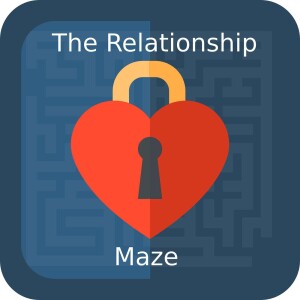
How trusting are you - in yourself and in others?
 2022-02-21
2022-02-21
Send us a text
Today we discuss different aspects of trust: the trust you place in yourself and in other people. We have to trust other people implicitly all the time. For example, when driving a car we trust the other drivers not to crash into us.
We make predictions about what is going to happen based on our previous experiences. If these experiences have been largely positive, we are likely to have to have similar expectations of other people in subsequent situations. The same is true of negative experiences. Our experiences shape our beliefs.
When dating or in the early stages of a relationship you are in a situation of vulnerability. You cannot predict yet whether the other person is going to stick around. Dating comes with a certain amount of risk.
Whether you are more or less trusting in your relationships depends on your earlier experiences. If you have learned in childhood or adulthood that other people are not reliably there for you, you are likely to predict that the same will happen in your present relationships. If you have an insecure attachment style (anxious-preoccupied, avoidant-dismissive or fearful-disorganised), you will be less trusting of other people because your earlier experiences have taught you that the important people in your life are not always available to you.
If you have little trust in yourself, you may frequently self-sabotage by unconsciously choosing partners who are not trustworthy. They confirm what you already think about yourself.
The more trust you have in yourself, the more trust you think yourself as lovable and desirable, the more likely you are to project this out to other people.
How can more trust be created in relationships? We discuss some of the ways in which you can show each other your trust.
To find out more about attachment styles check out our quiz on The Relationship Maze website or listen to our earlier episode How learning about attachment styles can help you understand your relationship.
Contact us for information about individual counselling/psychotherapy, couples therapy, clinical supervision or CPD training.
Tom's website
Angela's website
Struggling with a lot of conflict and arguments in your relationship? Learn about communicating effectively and addressing common relationship problems in our Stop Arguing, Start Loving mini course.
Learn everything you always wanted to know about building and maintaining loving relationships in our comprehensive course The Relationship Maze, starting with understanding yourself in relationships to understanding your partner and understanding what makes for a successful relationship. We look at common causes of relationship problems and offer solutions. Learn how to address relationship problems and questions without breaking up.
More Episodes
Create your
podcast in
minutes
- Full-featured podcast site
- Unlimited storage and bandwidth
- Comprehensive podcast stats
- Distribute to Apple Podcasts, Spotify, and more
- Make money with your podcast
It is Free
- Privacy Policy
- Cookie Policy
- Terms of Use
- Consent Preferences
- Copyright © 2015-2024 Podbean.com





